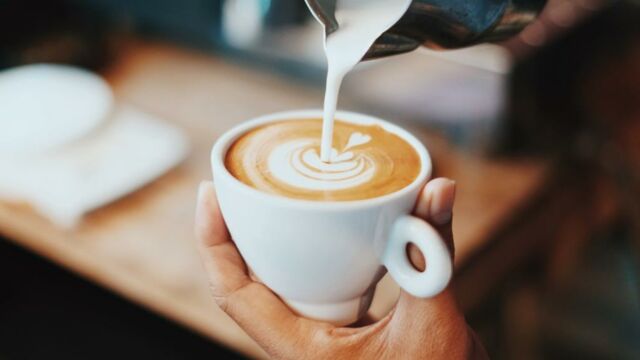An energy-booster, a morning staple or, for some, the dream companion of a smoke break,coffee is undoubtedly an indulgence you can live with. And if you've ever had a craving after drinking it, rest assured you're not alone! And doctors have an excellent explanation for this.
Discover our latest podcast
Coffee and n°2
The energizing and stimulating effects of coffee are not limited to the nervous system. A study published in the scientific journal National Library of Medicine has shown that its impact can also be observed on... the intestines! When gastroenterologists analyzed coffee's impact on the body, they discovered that it not only secretes gastric acid, but also enzymes in the pancreas, which are also involved in breaking down food.
Such a situation sends a very simple signal to the body: 'something new is coming in, we've got to make room'. Sammie Gill, dietician and gastroenterologist, explained that it's not uncommon for the muscles of the large intestine to contract, resulting in the urge to eat a large portion. This is not just the case for classic coffee drinkers. Decaffeinated coffees have the same effect on some individuals.
However, several experts qualify coffee's laxative power. According to them, the urge to go to the bathroom felt after the first few sips is mainly due to the gastrocolic reflex, which is much stronger in the morning.
When the coffee poop hits:pic.twitter.com/kAMxlFFoxA
— Mike Wright (@FFHitman) September 18, 2023
Read more:Coffee: Here's the unexpected reason why you should never drink it early in the morning
Is coffee your enemy?
Yellow teeth, addiction and, from now on, uncontrollable cravings are all negative points attributed to coffee. However, according to Frank Hu, Chairman of the Department of Nutrition at Harvard's T.H. Chan School of Public Health, coffee is not inherently bad, provided you drink it at the right time and in moderation. In such cases, its consumption has even been linked to a reduced risk of type 2 diabetes, heart attacks and depression.
So how do you drink your coffee properly? For intestinal comfort, experts recommend never drinking coffee on an empty stomach. Ideally, they say, you should wait until mid-morning. This news is unlikely to please caffeine-addicted breakfast drinkers. It should be noted that consuming caffeine before a sports session can make training more effective, by giving the ideal boost. However, pregnant women, children and people prone to panic attacks should be warned. Their more fragile bodies are not compatible with the consumption of this energizer.
Read more:
This article has been translated from Gentside FR.
Sources used:
Harvard: Is coffee good or bad for your health?
King's College London: Optimising gut health: physiological, microbiological and metabolomic effects of fibre from natural food products
National Library of Medicine: Effect of coffee on distal colon function.















